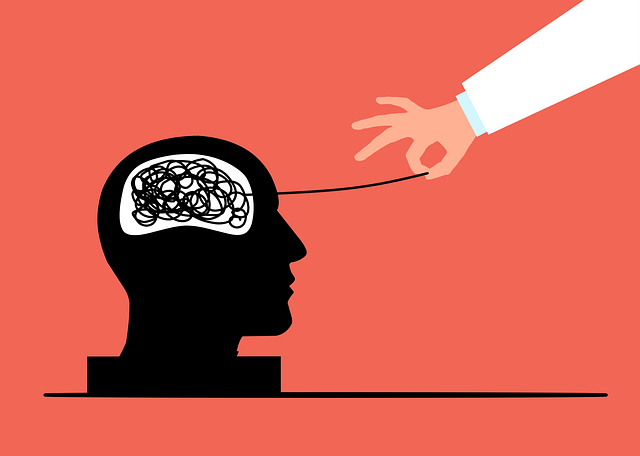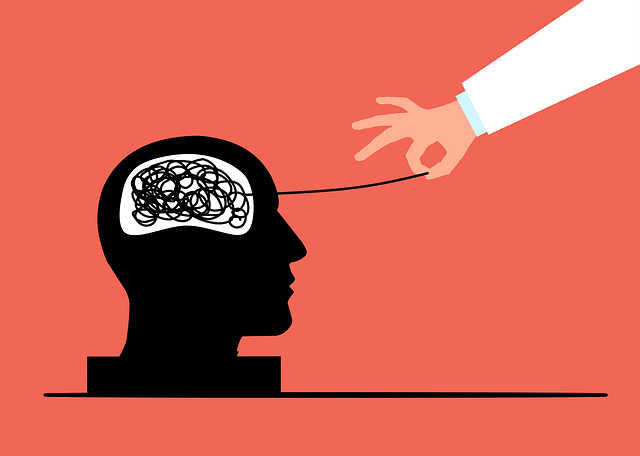Boulder Cognitive Behavioral Therapy (BCBT), integrated with Resourceful Life Management (RFM), offers a holistic approach to build resilience in healthcare professionals facing demanding situations. This combination of cognitive techniques, mindfulness practices, and social skills training empowers individuals to adapt to change, manage stress, prevent burnout, and enhance emotional wellness. BCBT challenges negative thought patterns, while RFM teaches effective coping strategies for life's challenges, fostering self-reliance and personal growth in a fast-paced world.
“Unleash your inner resilience with an innovative approach combining RFM (Risk, Facilitation, and Motivation) and Boulder Cognitive Behavioral Therapy (CBT) techniques. This article delves into the powerful synergy of these methods for building mental fortitude. We explore how CBT’s evidence-based strategies, when integrated with RFM, create effective resilience training. From understanding risk factors to designing practical exercises, you’ll discover actionable tips for implementing these strategies. Overcome challenges and cultivate a resilient mindset with this transformative journey.”
- Understanding RFM and Its Role in Resilience Building
- The Science Behind Cognitive Behavioral Therapy (CBT) Techniques
- Integrating CBT with RFM for Effective Resilience Training
- Designing Practical Resilience-Building Exercises
- Implementing RFM Strategies: Tips and Potential Challenges
Understanding RFM and Its Role in Resilience Building

Resilience is a crucial asset in today’s fast-paced and often demanding world, especially within the healthcare sector where professionals frequently encounter challenging situations. RFM, or Resilience, Flexibility, and Mindfulness, is an approach that has gained traction as a powerful tool to enhance resilience among individuals, particularly those practicing Boulder Cognitive Behavioral Therapy (BCBT). This method leverages the mind-body connection by incorporating cognitive techniques with mindfulness practices, fostering a robust mental fortitude.
The RFM framework encourages individuals to embrace flexibility in their thinking and behavior, enabling them to adapt to change and navigate stress more effectively. By integrating Mind Over Matter principles, healthcare providers can develop burnout prevention strategies, enhancing their overall well-being. Moreover, Social Skills Training within this context can improve communication and support networks, offering a vital safety net during stressful periods. These exercises not only strengthen resilience but also contribute to the personal growth of individuals engaged in BCBT.
The Science Behind Cognitive Behavioral Therapy (CBT) Techniques

The Science Behind Cognitive Behavioral Therapy (CBT) Techniques
Cognitive Behavioral Therapy, or CBT, is a highly effective form of psychotherapy that has been practiced for decades in boulder cognitive behavioral therapy settings. Its effectiveness lies in its ability to identify and change negative thought patterns and behaviors, ultimately improving one’s mental wellness coaching programs. Through this process, individuals can develop conflict resolution techniques that empower them to manage anxiety relief more effectively. CBT is based on the understanding that our thoughts, feelings, and actions are interconnected; by modifying these cognitive processes, it’s possible to bring about positive changes in emotional states and behaviors.
This therapy encourages clients to become active participants in their own healing process. Therapists guide individuals to recognize unhelpful thought distortions, challenge them, and replace them with more realistic and adaptive ones. This technique has proven successful not only in treating common mental health issues but also in enhancing general resilience. By learning CBT skills, folks can better navigate life’s challenges, fostering a greater sense of control and emotional stability.
Integrating CBT with RFM for Effective Resilience Training

Integrating Cognitive Behavioral Therapy (CBT) with Resourceful Life Management (RFM) techniques offers a powerful approach to resilience building and mental health improvement. CBT, a well-established therapy method, focuses on challenging negative thought patterns and behaviors, while RFM empowers individuals to cultivate resources and coping strategies for navigating life’s challenges. By combining these two effective modalities, individuals can develop a robust self-care routine tailored to their unique needs. This holistic approach not only enhances overall resilience but also equips folks with the tools to manage stress, anxiety, and even trauma effectively.
Mental health awareness is crucial in today’s fast-paced world, where individuals often face relentless demands. Trauma support services can play a pivotal role by providing platforms for learning RFM and CBT techniques. These evidence-based methods enable people to take charge of their mental well-being, fostering self-reliance and a sense of control over life circumstances, ultimately leading to profound personal growth and transformation.
Designing Practical Resilience-Building Exercises

Resilience-building exercises should be designed with practical application and relatability in mind, mirroring real-life challenges and coping mechanisms. The exercises should be adaptable to diverse backgrounds and abilities, emphasizing cognitive behavioral therapy principles for emotional regulation and stress management. Incorporating various activities like role-playing scenarios, mindfulness practices, and self-awareness exercises can help individuals develop effective strategies for navigating adversity.
For instance, exercises focused on reframing negative thoughts could boost self-esteem improvement by teaching participants to challenge unhelpful beliefs. Public awareness campaigns development around resilience can further normalize discussing emotional health, fostering a supportive environment where individuals feel empowered to implement these strategies in their daily lives. The key is to create engaging and interactive sessions that encourage active participation and facilitate meaningful personal growth.
Implementing RFM Strategies: Tips and Potential Challenges

Implementing RFM (Resilience, Flexibility, and Mindfulness) strategies through Boulder Cognitive Behavioral Therapy (BCBT) offers a powerful approach to enhancing individuals’ resilience. These techniques encourage clients to develop self-awareness exercises, fostering a deeper understanding of their thoughts and emotions. By integrating mindfulness practices, individuals learn to navigate challenging situations with greater calmness and clarity. BCBT’s structured framework guides participants through various exercises, including cultural sensitivity in mental healthcare practice, to promote healthy coping mechanisms.
However, when implementing RFM strategies, therapists should anticipate potential challenges. Engaging clients in self-awareness exercises may evoke difficult emotions or memories, requiring a skilled therapist to create a safe and supportive environment. Furthermore, tailoring these exercises to diverse populations considers cultural sensitivities, ensuring inclusivity and effective treatment for all. Social skills training is another aspect that demands careful navigation, as it helps individuals express themselves assertively while respecting boundaries, particularly in group settings.
Boulder Cognitive Behavioral Therapy (CBT) offers a powerful framework for building resilience through structured techniques. By integrating CBT with RFM (Resilience, Flexibility, and Mastery), we can design effective exercises that empower individuals to navigate challenges. Practical resilience-building strategies, when implemented with care, can foster adaptability and enhance overall well-being. Understanding the science behind CBT, its role in resilience, and practical tips for implementation ensures a robust approach to building mental fortitude. Embrace these strategies to transform obstacles into opportunities and cultivate a resilient mind.














